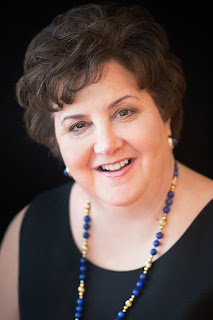What if My Mother Didn’t Love Me? – Writing the Opposite of What You Know by Debra H. Goldstein
My mother loved me, but what if she hadn’t?
Writers write what they know, but sometimes what a writer
“knows” isn’t particularly interesting and definitely couldn’t sustain an
engaging novel. That’s when writers do what they do best – creative thinking.
For example, I was my mother’s miracle baby – her first
successful pregnancy, her brilliant beautiful bubbly daughter (she saw what she
wanted to see). She taught me to read, was my Girl Scout leader, cheered me on
in whatever activity I chose to try, and beamed with pride when I graduated
from college and law school. Even if something didn’t quite go the way I hoped,
I always knew my mother was there for me.
In just a few sentences, I’ve summarized enough of our relationship
for you, a reader, to know our story and realize it lacks the conflict necessary
to build a plot around. But, what if our interaction had been different? Would
you find it more interesting if she hadn’t been loving and supportive? If she’d
walked out of my life when I was a child without telling me why? What would be
the impact of such a family dynamic on the woman I became?
Once these questions crossed my mind, the endless story
possibilities intrigued me. Consequently, when I began writing the
mother/daughter subplot in my new book, Should
Have Played Poker: a Carrie Martin and the Mah Jongg Players Mystery, I
chose to reverse what I know and give Carrie a mother who appears out of the
blue, twenty-six years after abandoning her family. Within hours of returning
and leaving Carrie with a sealed envelope and the knowledge that she once
considered killing Carrie’s father, Carrie’s mother is murdered. Compelled to
find out why her mother is dead and unravel why she abandoned her, Carrie soon
learns that what she was taught to believe and the truth may very well be two
different things.
I’m glad my mother loved me. I’m also happy to be a writer
who deliberately creates characters and situations opposite to “what I know.” This
method may require me to use my imagination and do a bit more research that is
never actually seen in the story, but it certainly makes for a far more
entertaining read. Don’t you agree?
Judge Debra H.
Goldstein is the author of Should
Have Played Poker: a Carrie Martin and the Mah Jongg Players Mystery (Five
Star Publishing, a division of Cengage – April 20, 2016) and the 2012 IPPY
Award winning Maze in Blue, a
mystery set on the University of Michigan’s campus. Her short stories and
essays have been published in numerous periodicals and anthologies, including Mardi Gras Murder and The Killer Wore Cranberry: a Fourth Meal of
Mayhem. Debra serves on the national Sisters in Crime, Guppy Chapter and
Alabama Writers Conclave boards and is a MWA member. She lives in Birmingham,
Alabama.
Should Have
Played Poker introduces Carrie Martin
and her fellow sleuths, the Sunshine Village retirement home Mah Jongg players,
as they work to uncover the mystery behind her mother’s murder.
Carrie’s life as a young corporate lawyer who is
balancing her job and visiting her father at the retirement home is upset when
her mother unexpectedly returns 26 years after abandoning her family. Her
mother leaves her with a sealed envelope and the confession that she once
considered killing Carrie’s father. Before Carrie opens the envelope, she finds
her mother murdered and the woman who helped raise her seriously injured.
Instructed to leave the detective work to the police,
Carrie and the ladies in the retirement home’s Mah Jongg circle attempt to
unravel Wahoo, Alabama’s past secrets, putting Carrie in danger and at odds
with a former lover – the detective assigned to her mother’s case.
http://www.amazon.com/Should-Played-Carrie-Players-Mystery/dp/1432831593/ref=sr_1_1?ie=UTF8&qid=1455807465&sr=8-1&keywords=should+have+played+poker (available for pre-order)
e-book 9781432831530
also available - April 20, 2016)




Comments
That said, I can get so completely into the point of view of the character (I usually write 1st person or very close 3rd person POV, and have only one POV character per work) that it feels to me like I'm writing what I know, even if it is the opposite of what I personally have experienced.
KM Rockwood
Jesse Damon Crime Novels
Interesting point. I hadn't quite looked at it in that vein. I think that holds true for the complete picture...but there are times we have to draw on emotions we've never had. Of course, we may end up borrowing someone else's experience for that purpose.
Nice post.